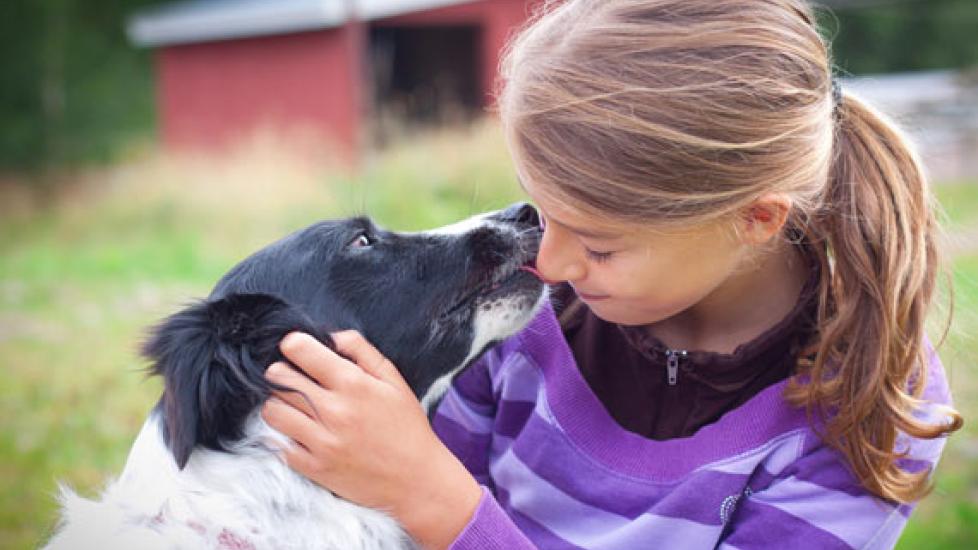Raising Children With Dogs Can Help Protect Them From Asthma
OpEd: We all know that dogs enrich our lives. It appears that having a dog inside the house may reduce the risk of asthma for the children of the household. New research suggests that dogs may add a diversity of bacteria to household dust that is protective against respiratory disease.
The Research on "Dog Dust"
The new findings are a result of the work conducted by Dr. Susan Lynch at UC San Francisco and Dr. Nicholas Lukacs of the University of Michigan. Specifically, these researchers looked at changes in the intestinal bacteria of mice exposed to dust from houses that had dogs with access to both indoors and outdoors. They identified a species of “good gust bacteria” that is critical in protecting the respiratory airways from sensitivity to allergens and viral infections.
Groups of mice were subjected to either exposure to dust from households with indoor/outdoor dogs or dust from households without dogs. Both groups were then challenged with exposure to cockroach or other protein allergens known for triggering allergic respiratory reactions. They found that the mice with pre-exposure to dust from households with dogs had a diminished asthma-associated inflammatory response.
The researchers attributed the results to greater intestinal levels of Lactobacillus johnsonii in the mice exposed to dust from households with dogs. When fed to mice in purified form, the researchers found that this “good bacteria” prevented airway inflammation associated with allergies, and also infection with respiratory syncytial virus, or RSV. RSV infection in children is known to increase the risk of asthma.
It is speculated from these results that dogs shed L. johnsonii bacteria in the household environment. Exposure to dust from the environment increased intestinal levels of this bacterium in the mice. If these results are correct, then it is believed that infants in households with dogs might also have increased gut levels of L. johnsonii. This could be protective against RSV, decrease respiratory allergic response, and decrease asthma risk in these households.
The means by which gut bacteria can influence respiratory disease is far from clear. But if this mechanism can be discovered it may lead to insights about the role of these bacteria and the immune response. This may lead to alternative methods of preventing and treating respiratory and potentially other conditions.
Overprotected Bubble Babies
The findings of this study certainly lend support to those who feel our children may be too protected from bacteria and other allergens. The overuse of disinfecting wipes and the reluctance of parents to allow their children access to sandboxes and other “dirty” environments may be limiting exposure to helpful bacteria.
Recent research indicates that children with early exposure to food allergens, peanuts for instance, are less likely to have allergies to those foods. Unnecessary early avoidance may in fact increase allergic risk. It certainly makes peanut butter bans in nurseries and pre-schools questionable.
One small study by an Indiana allergist found that only 7.2% of Amish children are sensitive to tree and other common pollen allergies as opposed to about 50% for other American children. Exposure to bacteria from barns, pens, and soil are thought to be the reason for protection. European scientists call this the “farm effect.”
A 2012 study in Finland found that exposure to greater outside plant diversity resulted in a greater variety of skin bacteria and reduced risk of allergies in teenagers.
These studies are small, and arguably flawed, but they support Drs. Lynch and Lukacs’s work. Raising children in a “bubble environment” may be contributing to the allergy epidemic.
More research will hopefully be done to evaluate whether the effects we see in mice are similar to those in children.

Dr. Ken Tudor
Image: AnneMS / Shutterstock
